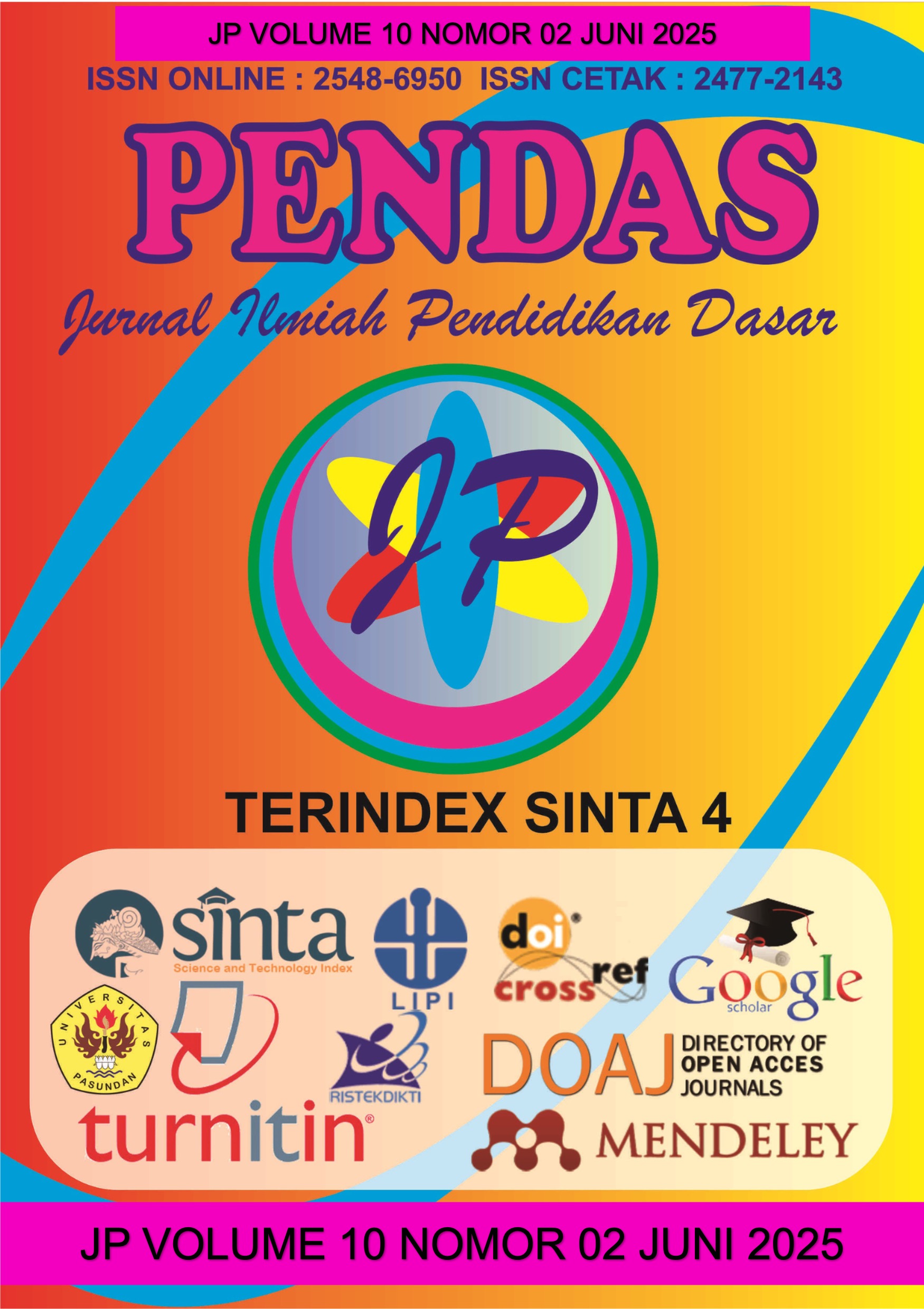UPAYA MENINGKATKAN HASIL BELAJAR MATEMATIKA MENGGUNAKAN MODEL PEMBELAJARAN GAMIFIKASI BERBANTUAN KAHOOT SISWA KELAS II SEKOLAH DASAR
DOI:
https://doi.org/10.23969/jp.v10i02.24115Keywords:
gamification, kahoot, maths, primary schoolAbstract
This research is based on the low mathematics learning outcomes of grade II students in mathematics learning at SD Negeri II Wonosari. This research aims to improve the learning outcomes of mathematics students in grade II by using the kahoot-assisted gamification model. This type of research is classroom action research (PTK). Data collection techniques are carried out by observation, interviews, tests and documentation. The data analysis techniques used are quantitative descriptive. This research consists of 2 cycles using the Kemmis & McTaggart model which includes planning, implementation of actions, observation, and reflection. The results of the study showed an increase in student learning outcomes after the implementation of the Kahoot-assisted gamification model. In the first cycle, the percentage of students who completed was only 16.67%, in the second cycle it rose to 62.50%, and the percentage of classical completeness had been achieved. This shows that there is an improvement in mathematics learning outcomes through the implementation of the Kahoot-assisted gamification model in Year II students of SD Negeri 3 Wonosari.
Downloads
References
Alsawaier, R. S. (2018). The effect of gamification on motivation and engagement. International Journal of Information and Learning Technology, 35(1), 56-79. https://doi.org/10.1108/IJILT-02-2017-0009
Dicheva, D., Dichev, C., Agre, G., & Angelova, G. (2015). Gamification in education: A systematic mapping study. Educational Technology & Society, 18(3), 75-88.
Hamari, J., Koivisto, J., & Sarsa, H. (2014). Does gamification work? A literature review of empirical studies on gamification. Proceedings of the 47th Hawaii International Conference on System Sciences, 3025-3034. https://doi.org/10.1109/HICSS.2014.377
Marisa, R., et al. (2020). Pengaruh gamifikasi dalam pembelajaran terhadap motivasi siswa. Jurnal Pendidikan dan Teknologi, 5(2), 112-124.
Nanda, I., Sayfullah, H., Pohan, R., Windariyah, D. S., Fakhrurrazi, Khermarinah, & Mulasi, S. (2021). Penelitian tindakan kelas untuk guru inspiratif. CV Adanu Abimata.
Pagarra, R., et al. (2020). Evaluasi pembelajaran berbasis gamifikasi untuk meningkatkan motivasi siswa. Jurnal Teknologi Pendidikan, 7(1), 43-52.
Su, C.-H., & Cheng, C.-H. (2015). A mobile gamification learning system for improving the learning motivation and achievements. Journal of Educational Technology & Society, 18(2), 4-23.
Sulistiyawati, W., Sholikhin, R., Afifah, D. S. N., & Listiawan, T. (2021). Peranan game edukasi kahoot! dalam menunjang pembelajaran matematika, Wahana Matematika dan Sains: Jurnal Matematika, Sains, dan Pembelajarannya, 15(1), 46-57. https://doi.org/10.23887/wms.v15i1.29851
Welbers, K., et al. (2019). The role of gamification in enhancing learning outcomes: A systematic review. Journal of Interactive Learning Environments, 27(4), 567-589.
Zainuddin, Z., et al. (2020). The impact of Kahoot! as a gamification tool in online learning. International Journal of Emerging Technologies in Learning, 15(20), 152-168. https://doi.org/10.3991/ijet.v15i20.15739
Indriana, I., Rijal, A., & Febriandi, R. (2021). PENGEMBANGAN MEDIA PAPAN CERDAS PERKALIAN PADA MUATAN PELAJARAN MATEMATIKA UNTUK SISWA KELAS II SEKOLAH DASAR. Primary Education Journal Silampari (PEJS), 3(1), 27-31. https://doi.org/10.31540/pejs.v3i1.2062
Paramita, M. D., & Rijal, A. (2024). PENERAPAN METODE ROLE-PLAYING BERBANTUAN WORDWALL QUIZ TERHADAP HASIL BELAJAR PPKN PADA SISWA SD. Pendas: Jurnal Ilmiah Pendidikan Dasar, 9(04), 339-350. https://doi.org/10.23969/jp.v9i04.19169
Downloads
Published
Issue
Section
License
Copyright (c) 2025 Pendas : Jurnal Ilmiah Pendidikan Dasar

This work is licensed under a Creative Commons Attribution 4.0 International License.














































